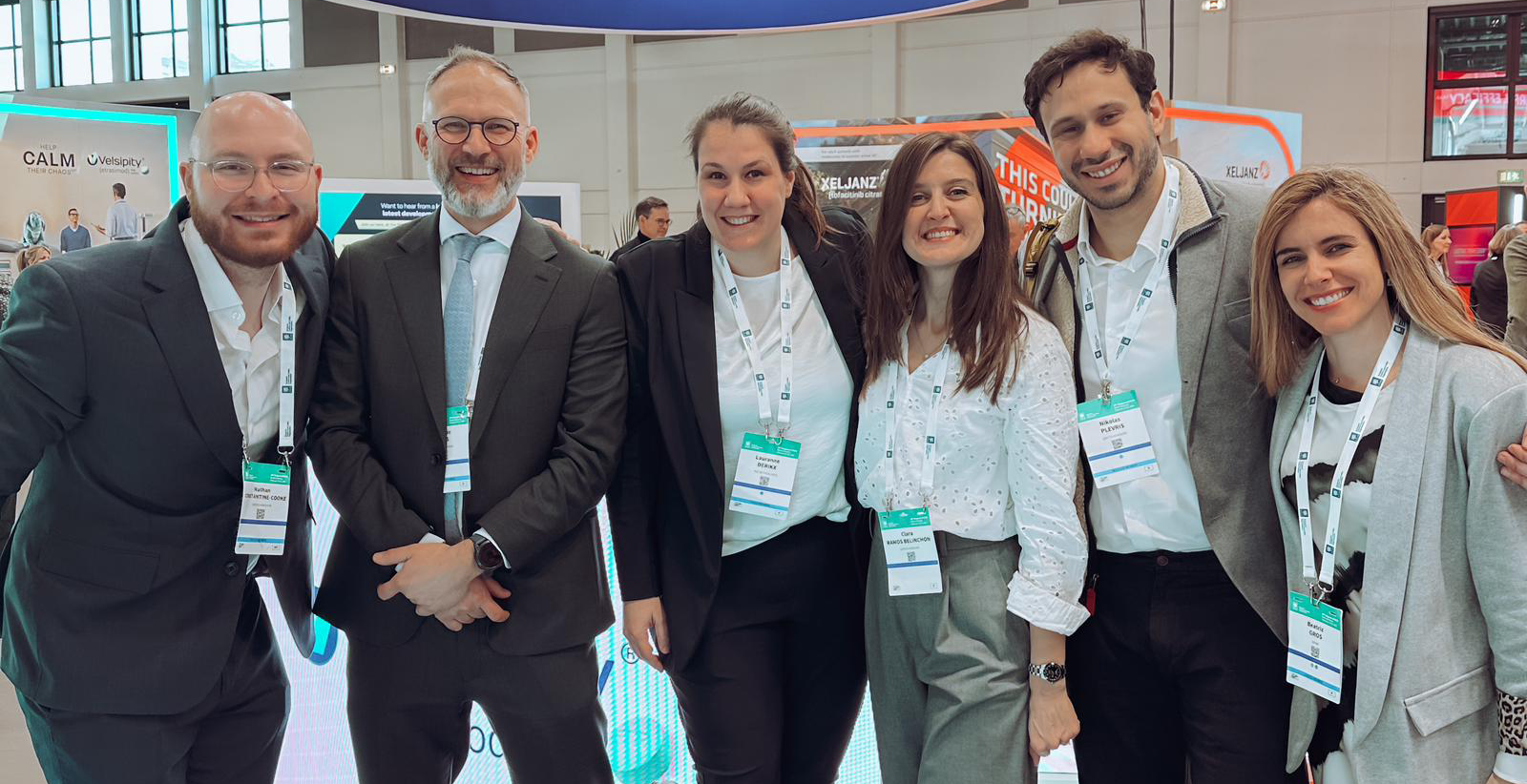World IBD Day

By Nathan Constantine-Cooke, Postdoctoral Research Associate at the Institute of Genetics and Cancer
This World IBD Day, I am reflecting on being both a person living with inflammatory bowel disease (IBD) and a researcher aiming to improve our understanding of these conditions. Around my 18th birthday, I began experiencing symptoms of ulcerative colitis, which alongside Crohn’s disease make up the two main forms of IBD. I began needing to urgently and frequently go to the toilet and would pass blood. Like approximately 10% of people with IBD, I have a relative who also lives with IBD. In my case, my dad had already been diagnosed with ulcerative colitis which meant I quickly recognised the symptoms. Whilst it is understood that IBD has a genetic component, genetics only partially explains why someone develops the disease. The current leading hypothesis is IBD is an immune response to unknown environmental triggers in genetically susceptible individuals.
By the time I started my university studies, I was taking a medication called mesazaline, which is a colonic anti-inflammatory, and azathiopurine, an immunosuppressant. Unfortunately, this combination failed to control my disease despite reducing my neutorphils (white blood cells which fight infections) to a very low level. This was then followed by my first biologic treatment. These are live antibodies which disrupt inflammatory processes by intercepting messages sent by the body. Initially, I was prescribed golimumab which involved regular injections in the skin at home. Later I would undergo infliximab and then vedolizumab infusions at my hospital. Unfortunately, none of these medications consistently controlled my disease. Only corticosteroids were effective, however these drugs are only able to induce remission – and cannot maintain it. Steroids are also associated with severe side effects including reducing bone density, rapid weight gain (particularly around the face), and mental health problems.
By the third year of being a student, I was drained. I spent most of my time in bed or on the toilet, and I needed to pause my studies. I had an appointment with my gastroenterologist, where she recommended I had a colectomy with ileostomy. This involved the removal of my large intestine with the end of my small intestine being routed through my abdomen. A stoma bag would then be attached to collect my waste.
Whilst initially a terrifying prospect, the months between the initial referral to a surgeon and the operation allowed me to come to terms with having a colectomy. Being able to reclaim my life, continue my studies, and do the things I enjoyed doing (such as swimming) greatly outweighed any self-image or stoma bag malfunction fears I had. I was incredible grateful for the freedom this appliance gave me.

Me with an ileostomy bag
Thankfully, my operation was a success, and I was able to continue my degree and take up physical activities once more. However, shortly before my final exams began, I once again experienced ulcerative colitis symptoms. My rectum, one of the final segments of the GI tract, had been left intact by the previous operation. However, this segment now needed to be removed.
This operation did not go smoothly, and I developed sepsis from a haematoma (where blood collects outside of blood vessels). This required readmission, a heavy dose of antibiotics and a trip to the radiology department for the insertion of a drain. Fortunately, I recovered fast enough to be able to sit my exams in the resit period, albeit with the drain still in.
My Masters degree in Biological Data Science was much less turbulent. Afterwards, I knew I wanted to stay in academia and do a PhD. However, when I searched for research projects applicable to my skillset, nothing particularly appealed to me. Given my history, I searched for IBD projects out of interest, expecting all of the projects would be aimed at clinicians or biologists. However, I came across a project proposed by Dr Catalina Vallejos and Professor Charlie Lees which greatly interested me, was highly relevant to my skillset, and became my PhD. In many ways, this is still the theme of my work to this day.
Whilst there are people living with IBD who have similar stories to me, there are lots of other people with very different stories. Some have had a much worse experience than me, whilst there are others who go on to never experience symptoms again after their diagnosis. It is this variety, and our inability to accurately predict how a patient’s disease will progress, which drives a substantial portion of modern IBD research. My research in the Lees group involves using hospital test data over time, collected via regular care delivery, to identify subgroups of patients. Typically, when a test used to monitor IBD is requested, only the prior test result or short-term trends are considered. My work incorporates test results over a longer time frame to identify subgroups of patients with different disease activities. We believe that we can then use these data to better predict which patients will experience a poor disease course and would benefit from enhanced care.
During my PhD, I underwent my (hopefully) final operation where an internal pouch was formed using the end of my small intestine – negating the need to use stoma bags. My day-to-day life is now largely unaffected by IBD. I take loperamide, a medication with very few side effects, and I need to use the toilet slightly more often than most people. My only remaining symptom is fatigue, (which I have been known to attempt to manage via caffeinated beverages).




Thank you for sharing your story in great detail. The bravery you showed when facing medical challenges during a time of adversity is amazing. You should, as others are, be very proud of what you have achieved.